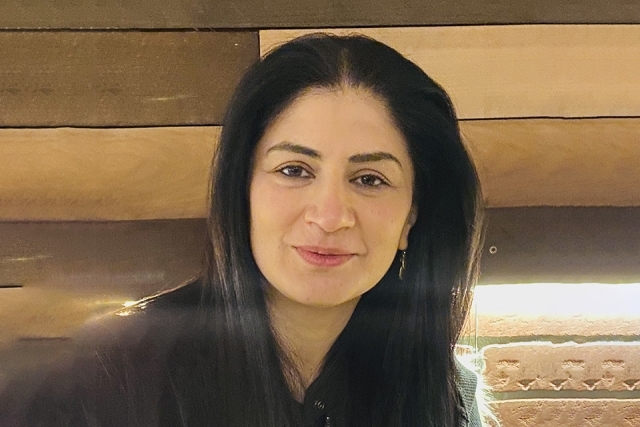
Shahla Hussain, Ph.D., Associate Professor, History, St. John’s College of Liberal Arts and Sciences, was recently awarded a prestigious Presidential Grant by the Russell Sage Foundation (RSF), co-funded with the Carnegie Corporation of New York, that will allow her to create an oral history project about the South Asian immigrant community in Queens, NY.
The $47,088 grant will enable Dr. Hussain to interview immigrants from Bangladesh, Nepal, and Pakistan living in Queens, NY, many of whom are garment workers, cab drivers, waiters, convenience store clerks, gas station attendants, and domestic workers.
“They have clustered together in crowded enclaves such as Astoria, Jackson Heights, Jamaica, and Richmond Hill, preferring to inhabit areas where they can interact with people of the same ethnic and linguistic backgrounds,” Dr. Hussain noted, adding that while these groups are integral to the South Asian diasporic experience, they have remained largely invisible.
“Very little research has been done that sheds light on the scope and magnitude of challenges faced by these immigrants as they navigate racism, xenophobia, religious bigotry, and the inequities in the service sector economy of the United States,” Dr. Hussain explained.
She added, “This project will insert their marginalized voices into the landscape of the debate on race and immigration so low-wage immigrants are not dismissed as nameless cogs operating within the service sector economy of the United States. In the process, it will broaden our understanding of the racialization of South Asian immigrants by investigating the intersection between race, labor, class, religion, and immigration.”
The project will run for two years with Dr. Hussain and a group of students interviewing 60 individuals from the communities. She will collaborate with community members to design interview questions that will meet the needs of those involved in the research. “This participatory research approach and direct engagement with stakeholders will diminish the hierarchical relationship between researchers and community members,” she stressed.
Dr. Hussain observed that the diversity found within Queens played a critical role in inspiring her to pursue this project. “The polyglot neighborhoods in Queens are ethnically diverse enclaves, and a large majority of the St. John’s student body belong to these immigrant communities,” she explained. “Some of them have been actively helping me establish contact with immigrant groups and will be participating in this project. The possibility of engaging with immigrant communities outside the gates of St. John’s and working with students who are a part of these immigrant groups significantly influenced the development of the project.”
Dr. Hussain expects her study will generate “a rich tapestry of stories and provide an in-depth understanding of the social world of low-wage immigrants from Bangladesh, Nepal, and Pakistan. Most significantly, the cross-disciplinary approach of this project will integrate disciplines of oral history, anthropology, and sociology to broaden our understanding of how the South Asian immigrant experience is shaped by race, class, religion, caste, and gendered politics. The project aims to acknowledge overlapping oppressions and the effects of these intersections.”
A historian who specializes in South Asian history, Dr. Hussain came to St. John’s in 2016. Since her arrival, she has designed and introduced several courses on South Asian history. In addition to the RSF grant, Dr. Hussain was awarded two book prizes, from the American Historical Association and the Berkshire Conference of Women Historians Book Prize, for her work, Kashmir in the Aftermath of Partition. The book “brings Kashmiris from the margins to the center of the historical debate to reveal the myriad Kashmiri imaginings of freedom in the wake of the 1947 partition,” said Dr. Hussain.
Dr. Hussain hopes this project will ultimately empower marginalized immigrant communities to speak up and “share their unheard stories that are often ignored in the dominant narratives.”
Related News
Founder’s Week Celebration Lights Hearts on Fire at St. John’s
St. Vincent de Paul was a practical man of action. He was a master at building teams composed of the most talented people suited to his cause. His passion motivated others; he set hearts on fire.
New Academic Year Celebrated by Honoring and Welcoming Faculty
On the eve of each new academic year—before the bustle that naturally comes with new and returning students—St. John’s University always takes a moment to pause and reflect on the critical contributions made by its faculty, honoring their service and welcoming its newest members.
St. John’s Embraces the AI Frontier: Preparing Students for a Human-Centered Future
At St. John’s University, artificial intelligence (AI) isn’t just a trending topic—it’s fast becoming an integral part of how students learn, create, and prepare for the world ahead.
